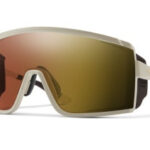Many dirt bike enthusiasts often wonder about the profit margins dealerships make on each sale. It’s a common misconception that dealers are raking in huge profits, but the reality is often more nuanced. Understanding the typical markup and the costs dealers face can provide valuable insight into the pricing of your next dirt bike.
Understanding Dirt Bike Dealer Costs and Markups
Generally, full-size dirt bikes carry a markup of around 6-10%. For a bike listed at $6,000, this means a dealer likely acquired it for approximately $5,300. This figure represents the base cost of the bike itself. However, the sticker price doesn’t account for the significant overhead costs that dealerships must absorb. These expenses include freight charges, which some dealers choose to incorporate rather than list separately. Beyond the bike’s cost and freight, dealers are responsible for a wide range of operational expenses. These include property mortgages or rent, employee salaries, taxes, utilities, and ongoing operational costs. These factors significantly impact a dealer’s profitability and pricing strategies.
The Abernathy’s Effect and Competitive Pricing
The emergence of high-volume dealerships like Abernathy’s has introduced a new dynamic to the market. Their ability to sell at very competitive prices, sometimes with minimal profit margins, puts pressure on other dealerships. While consumers might benefit from these lower prices in the short term, it raises questions about the long-term sustainability of such models and their impact on the broader dealer network. Some manufacturers are even perceived to be pushing inventory onto smaller dealers, who then struggle to compete with the pricing of these large operations. The concern is that if dealerships are driven solely by price competition, vital local dealers could disappear, potentially leading to reduced customer service and increased difficulty in accessing parts and maintenance in the future.
The Value of Local Dirt Bike Dealers
While the allure of a lower price is strong, it’s important to consider the value that local dealerships bring to the table. These dealerships offer convenience, personalized service, and often build long-term relationships with their customers. Having a local dealer means easier access to parts, quicker service turnaround, and a community connection that can be invaluable for riders. While larger dealerships might offer slightly lower upfront prices, supporting local businesses ensures a healthy and accessible network of dealerships for all riders in the long run. Ultimately, considering factors beyond just the initial purchase price, such as service and local support, can lead to a more satisfying and sustainable dirt bike ownership experience.

